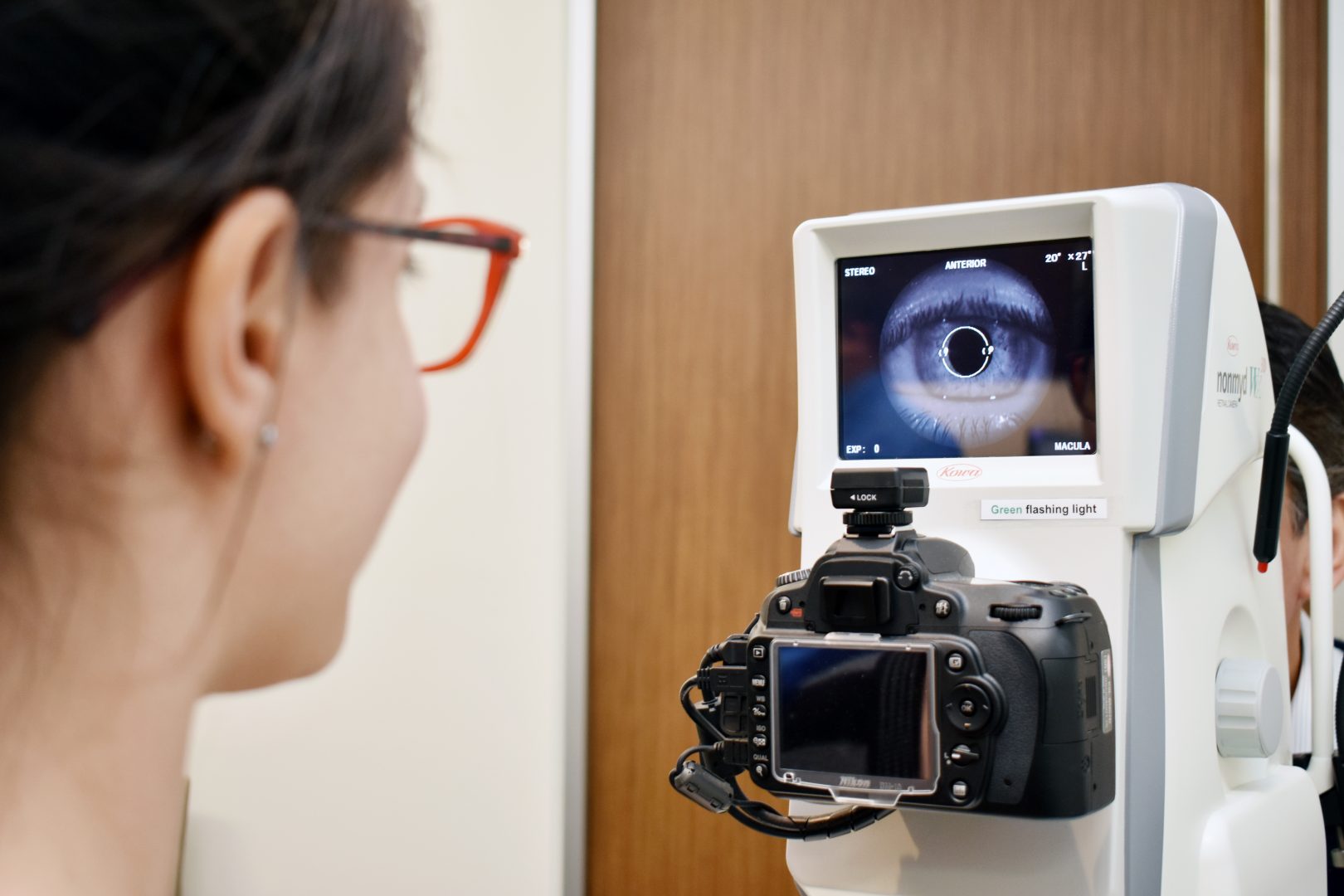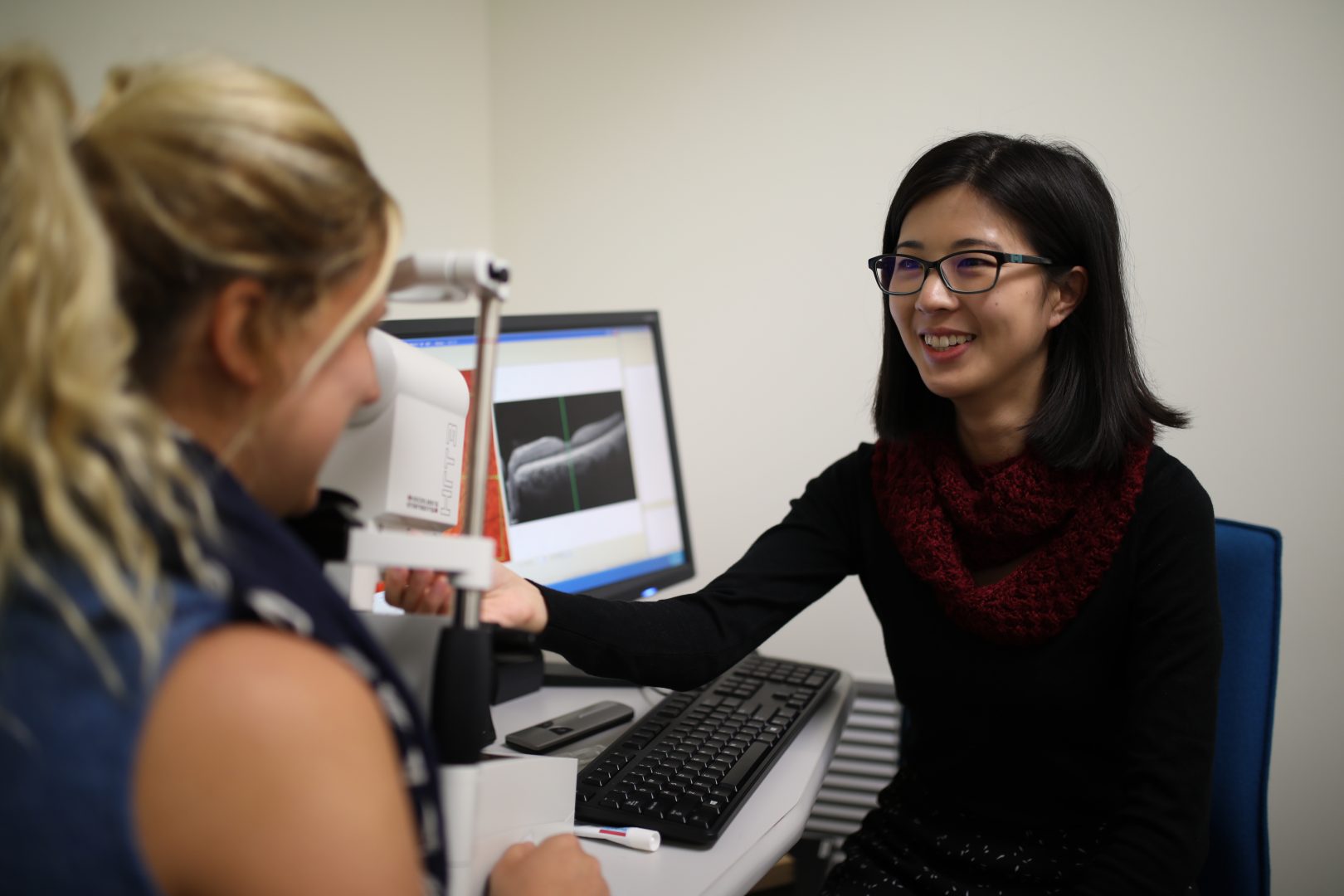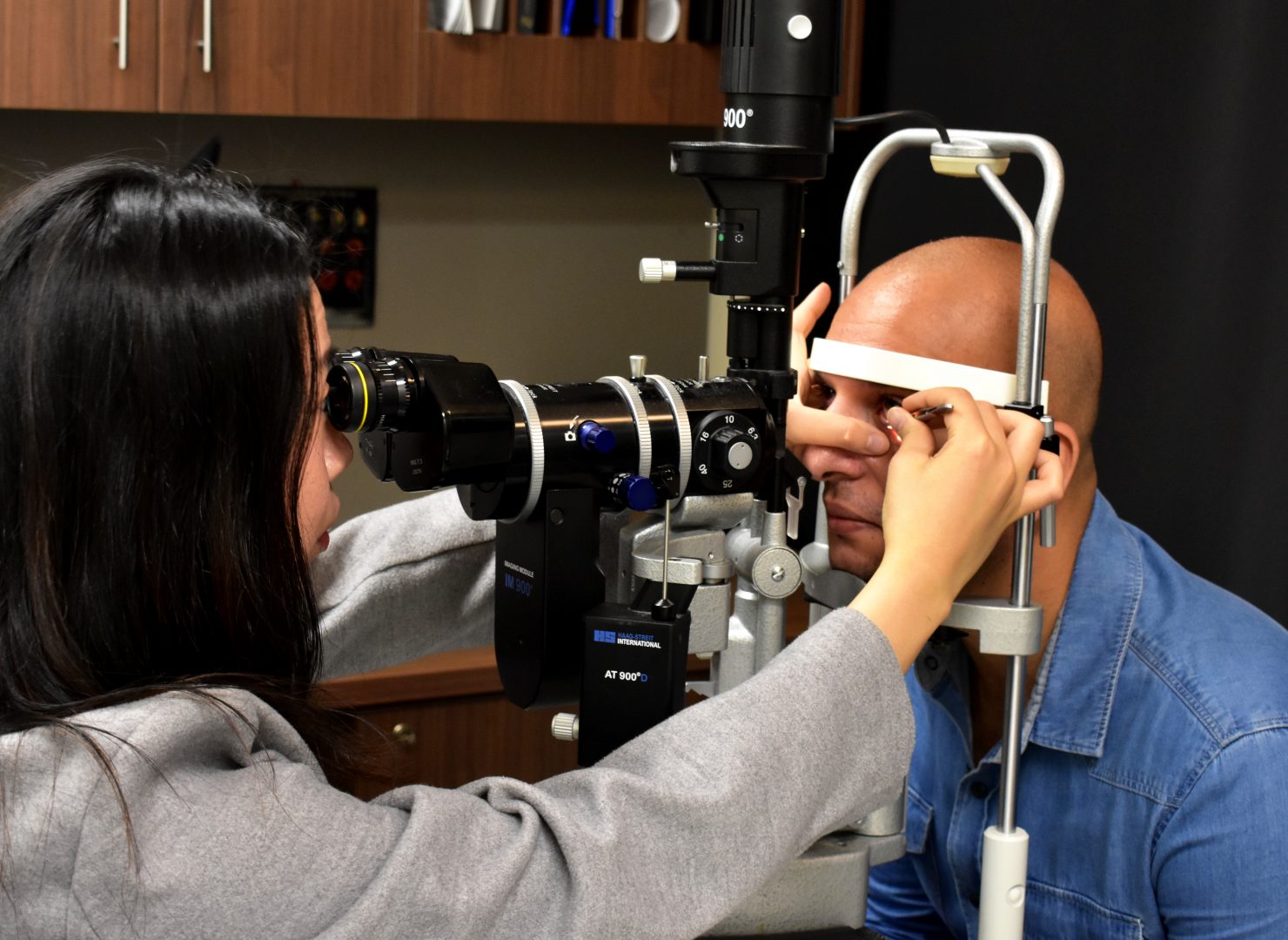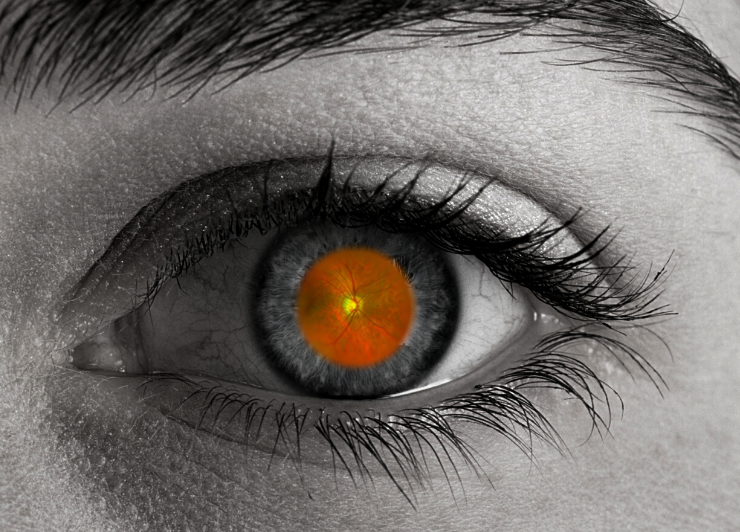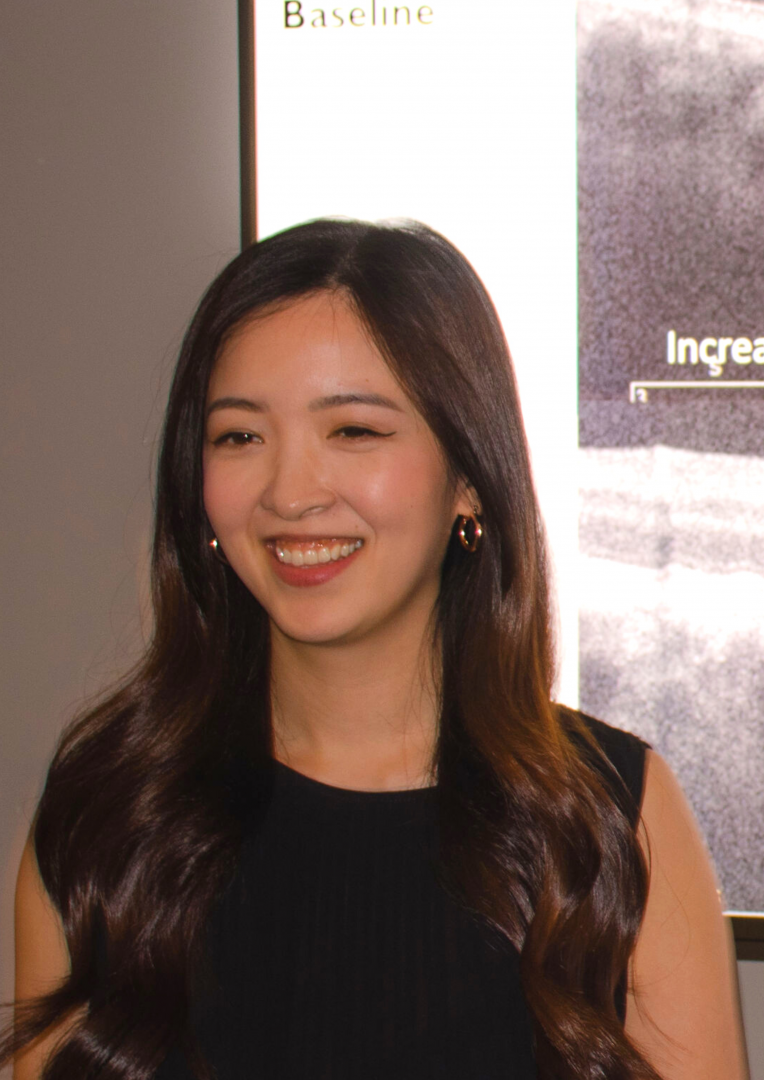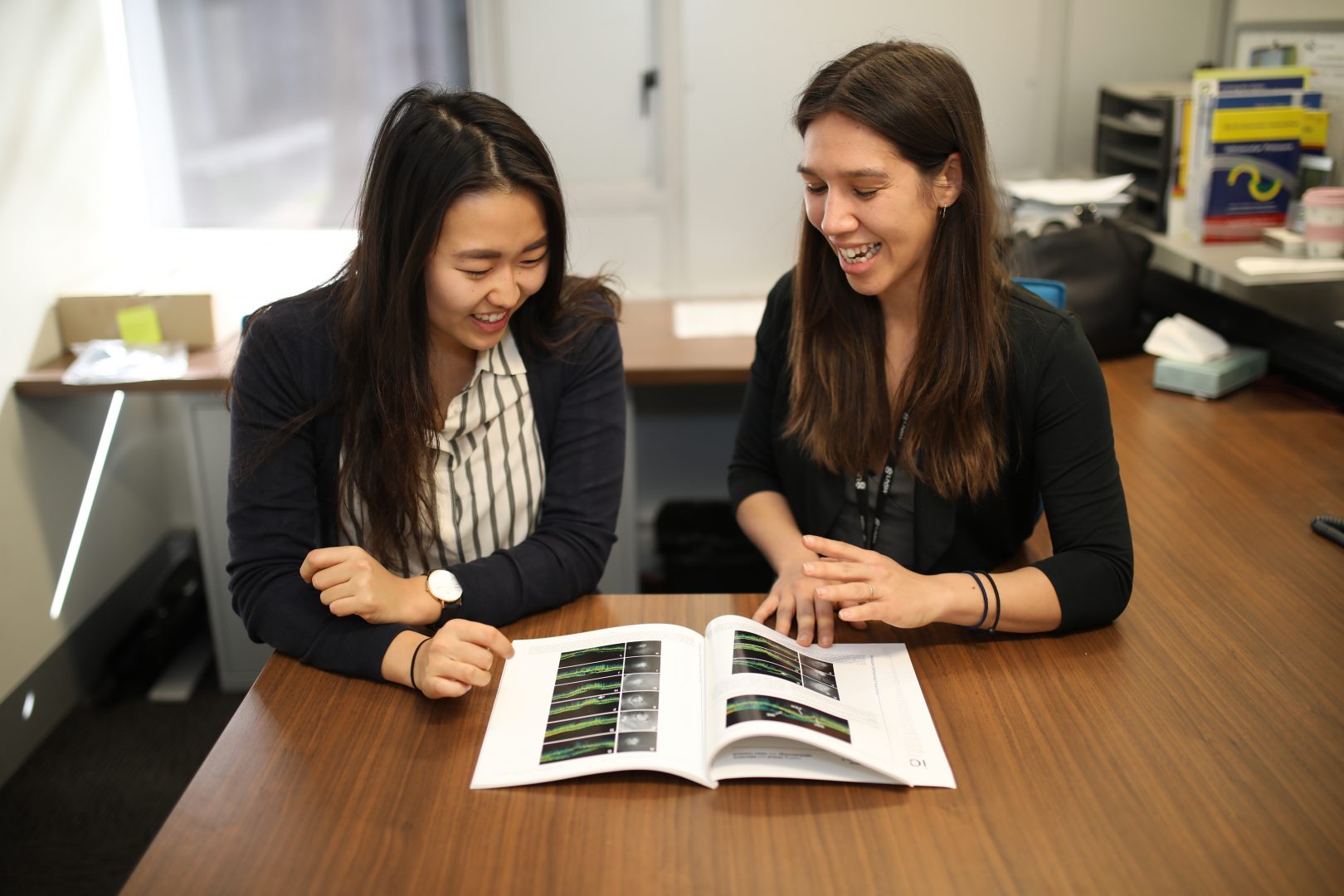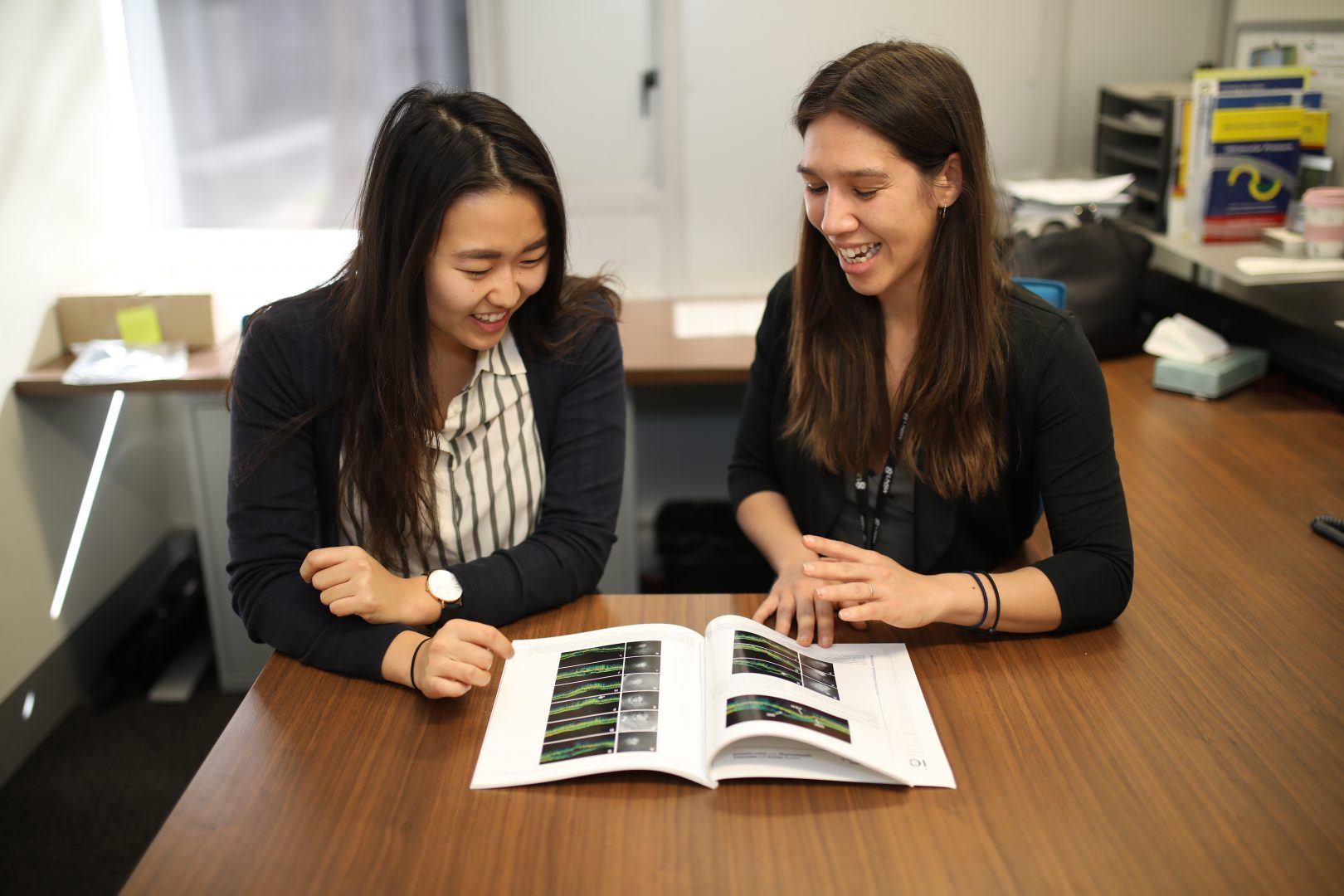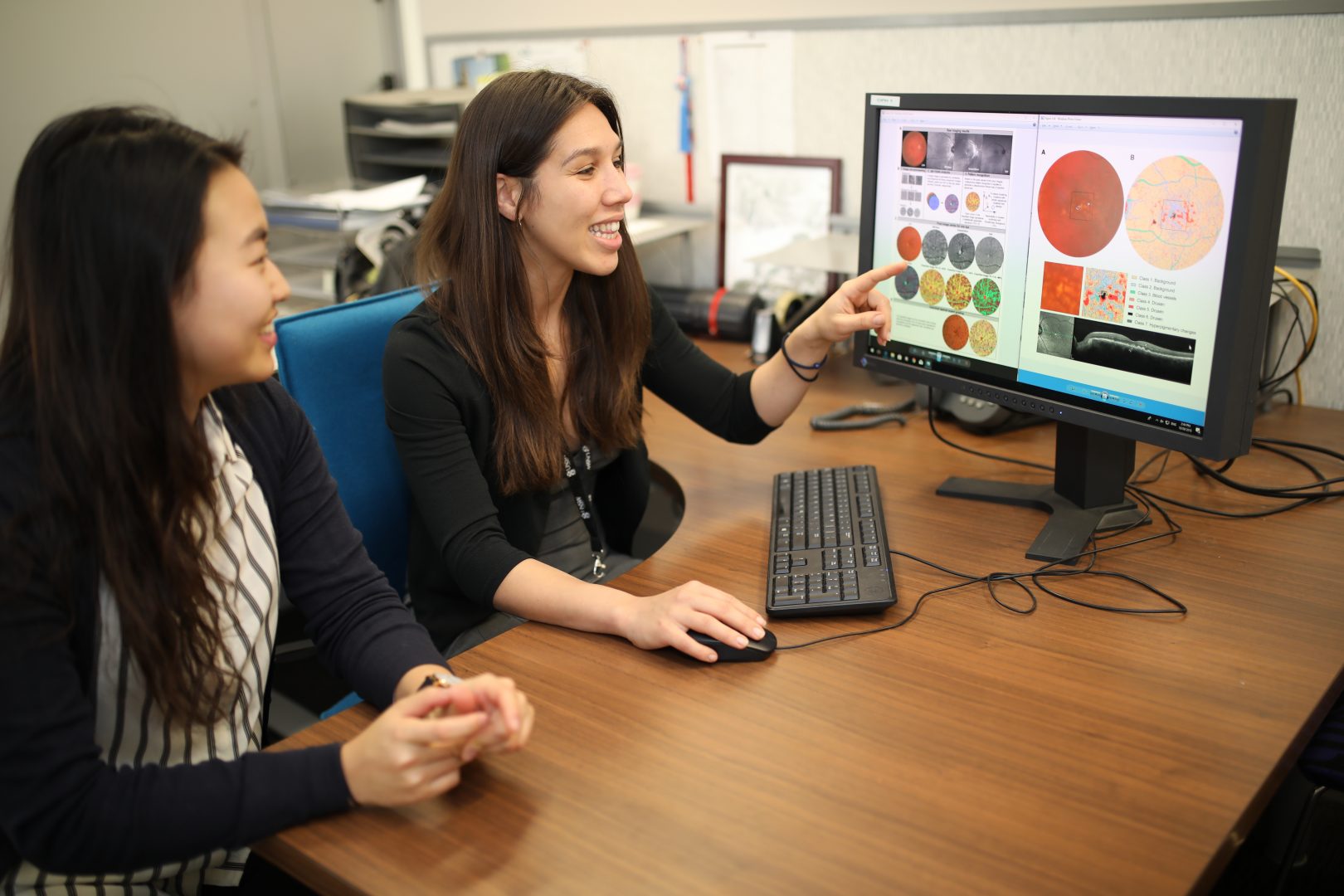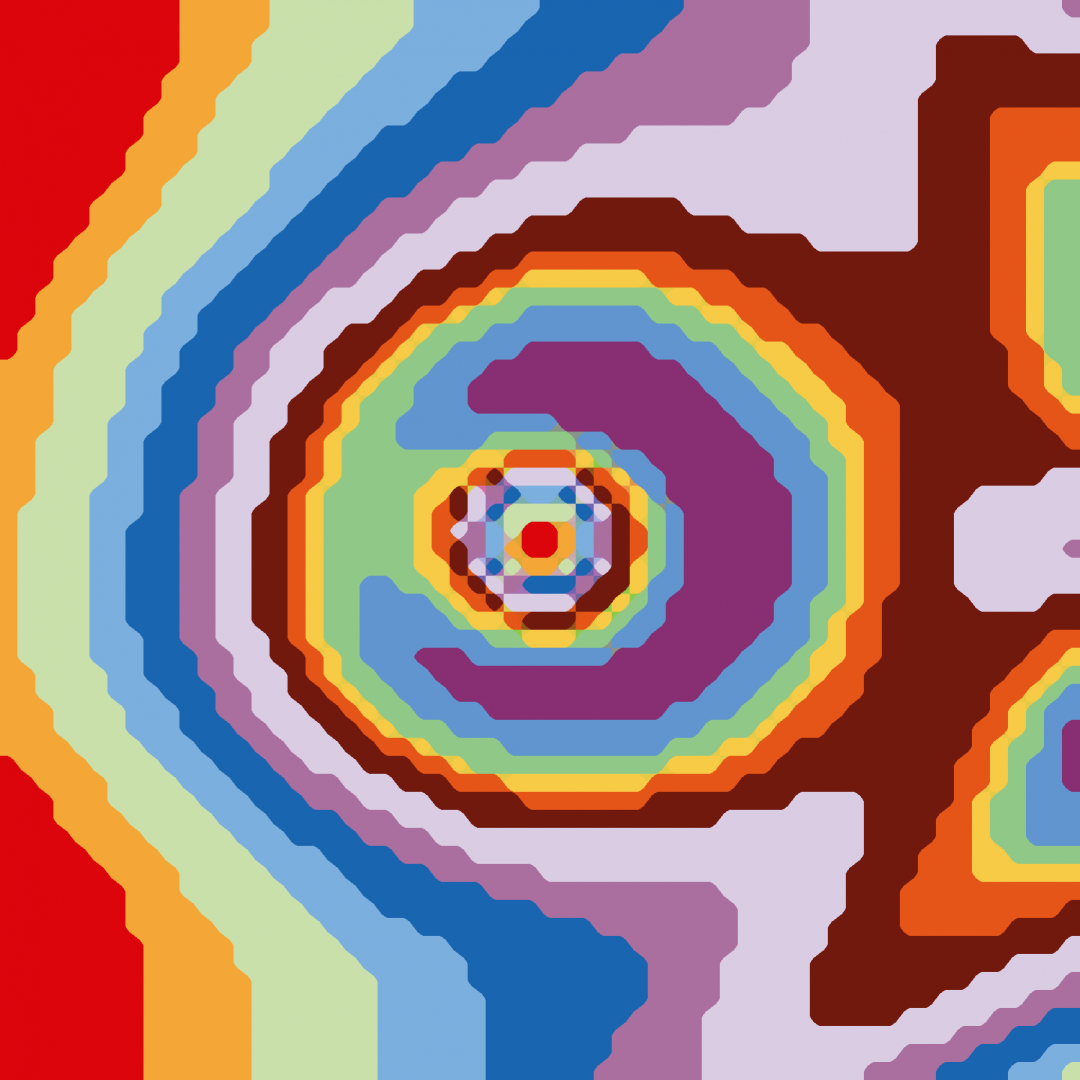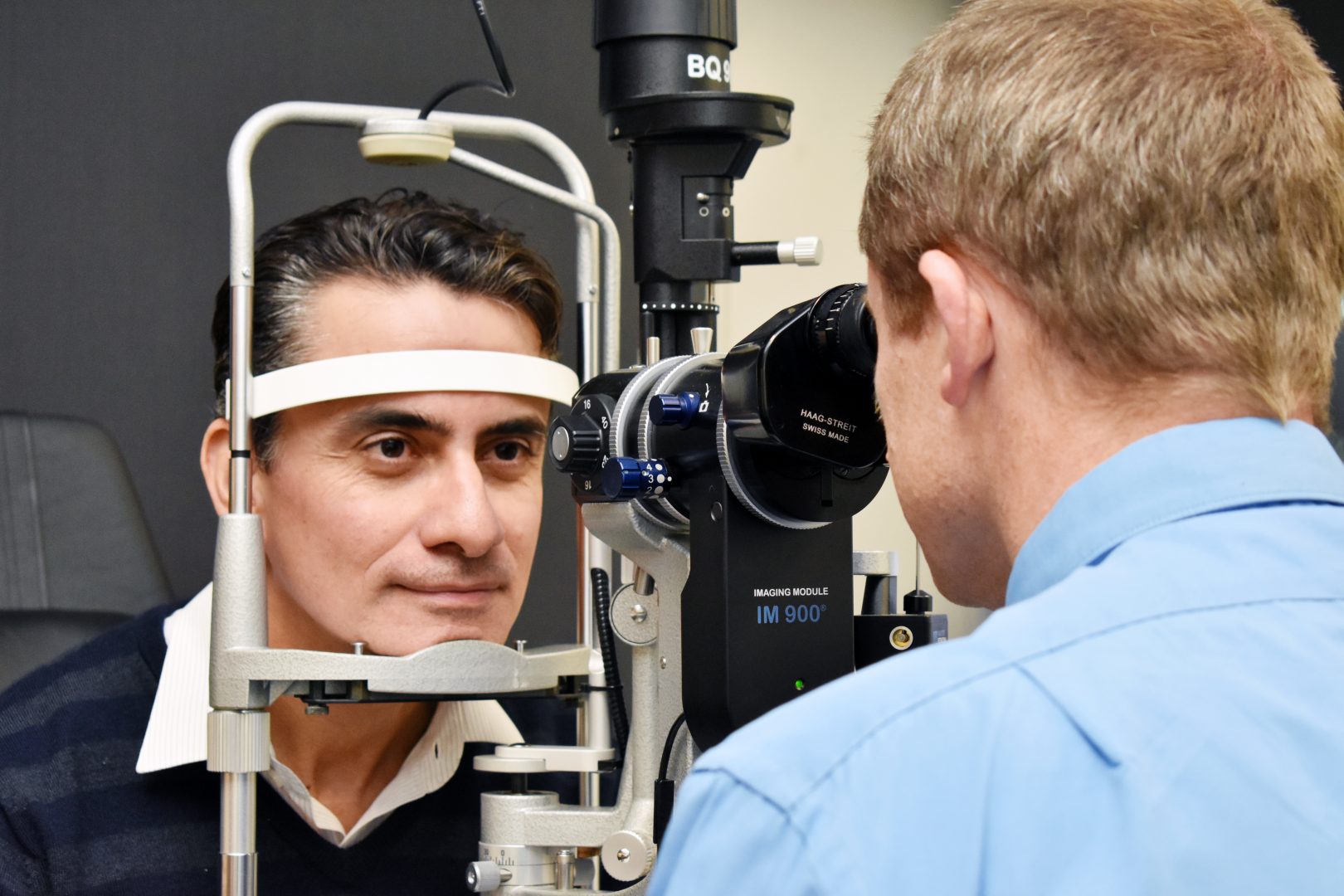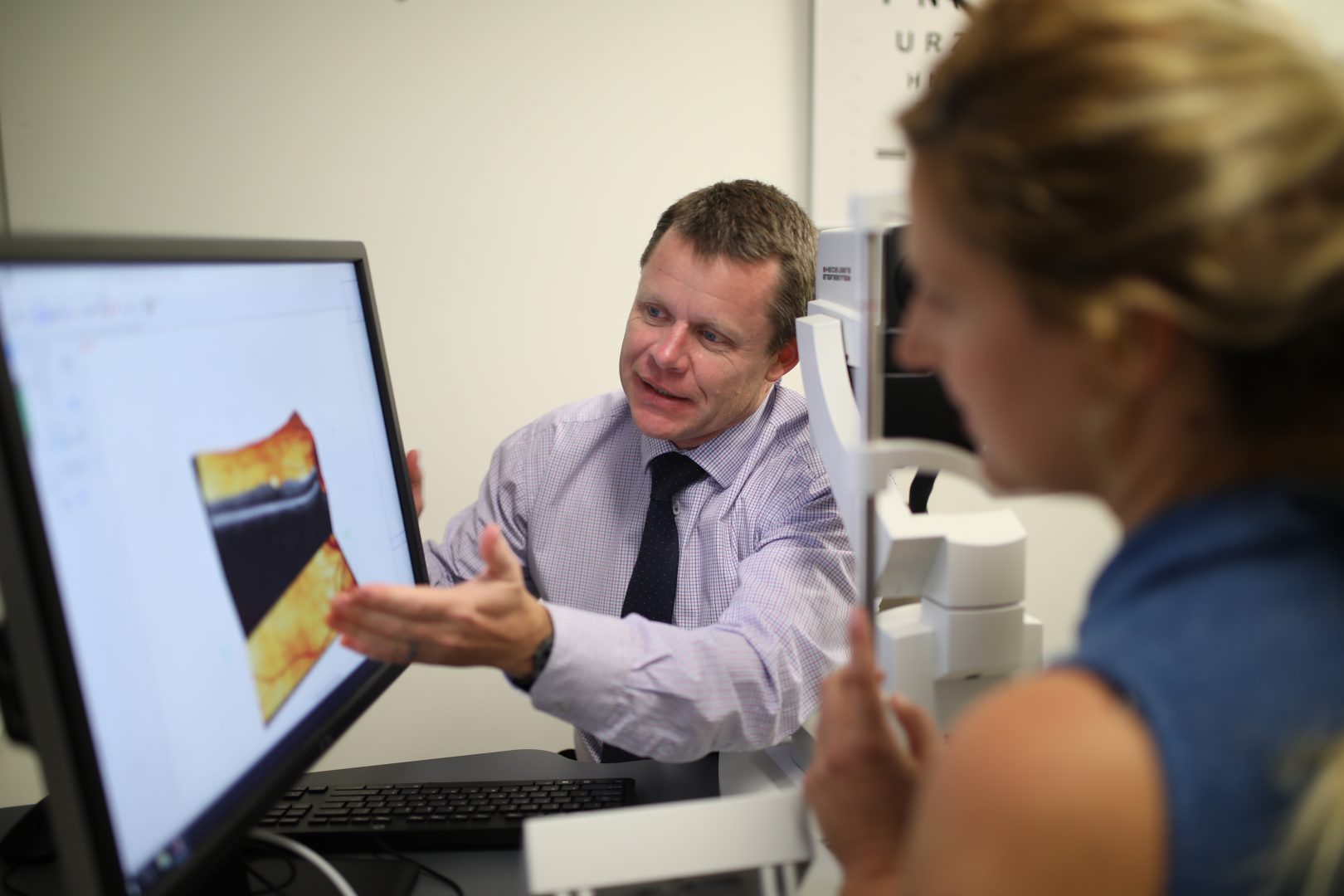
- Refer a Patient
- Referral Types
- Patient Information
- Overview of CFEH Clinics
- CFEH Instrument List
- Our clinical team
- Causes of Vision Loss
- Patient Forms
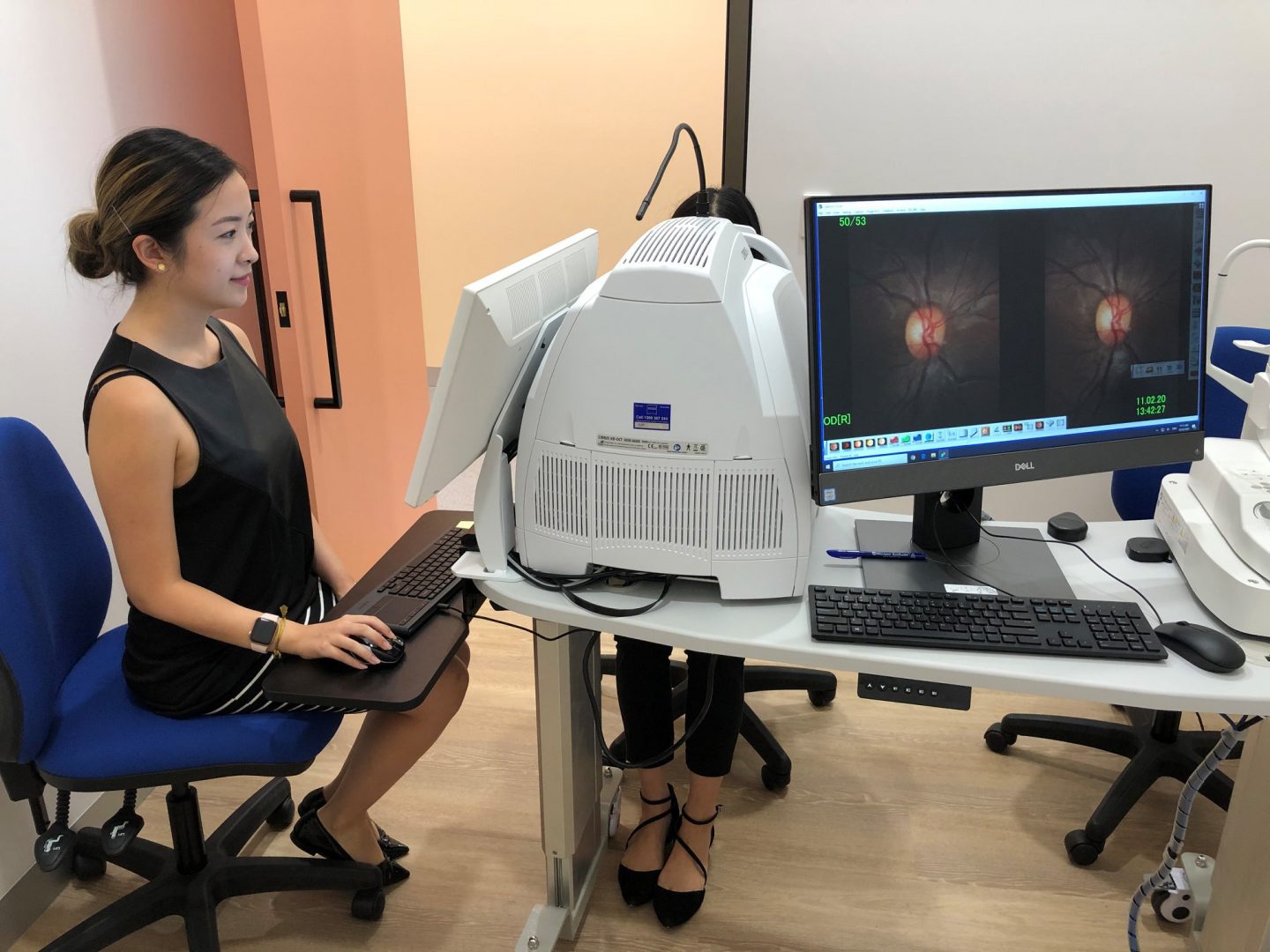
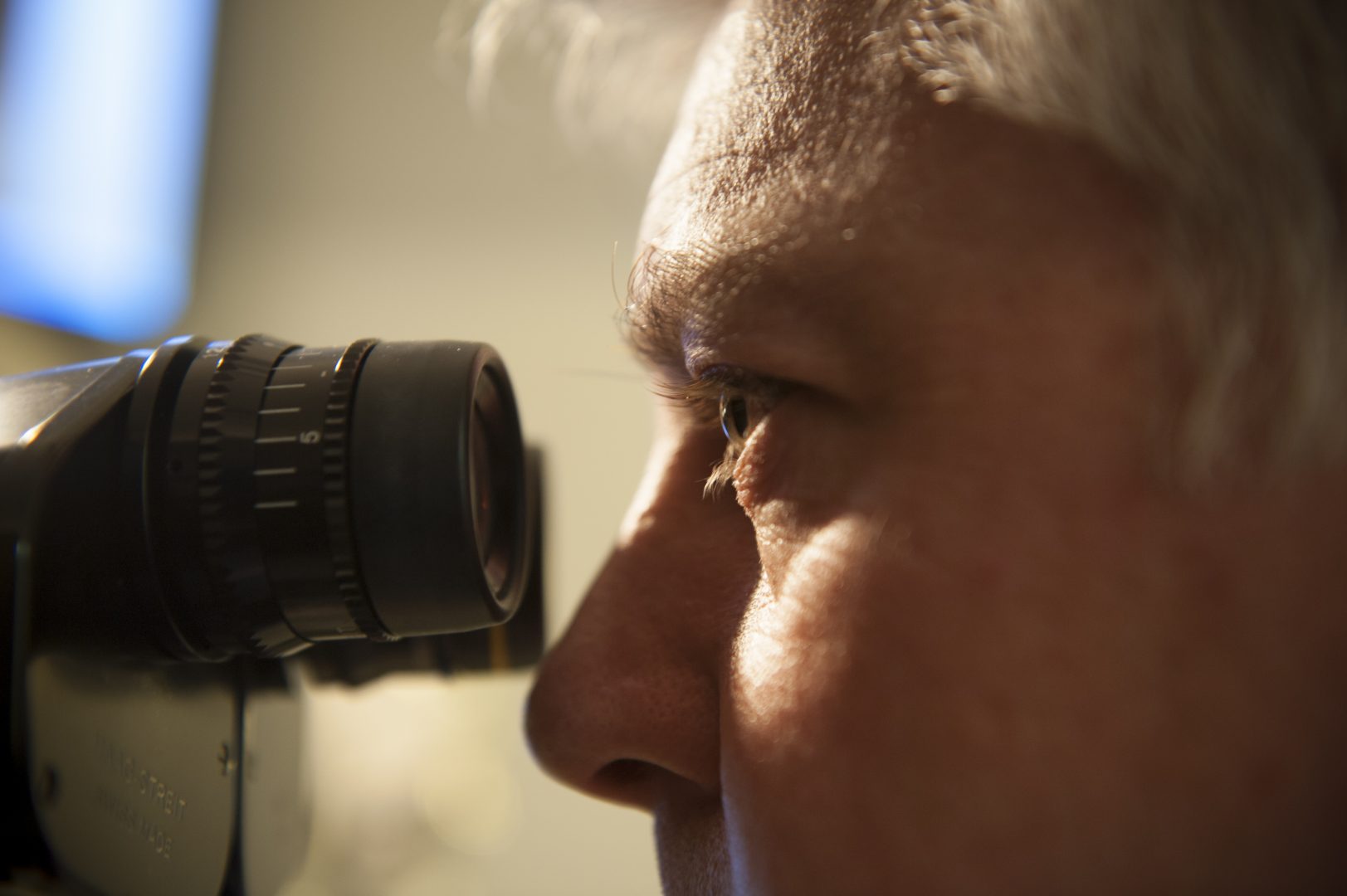


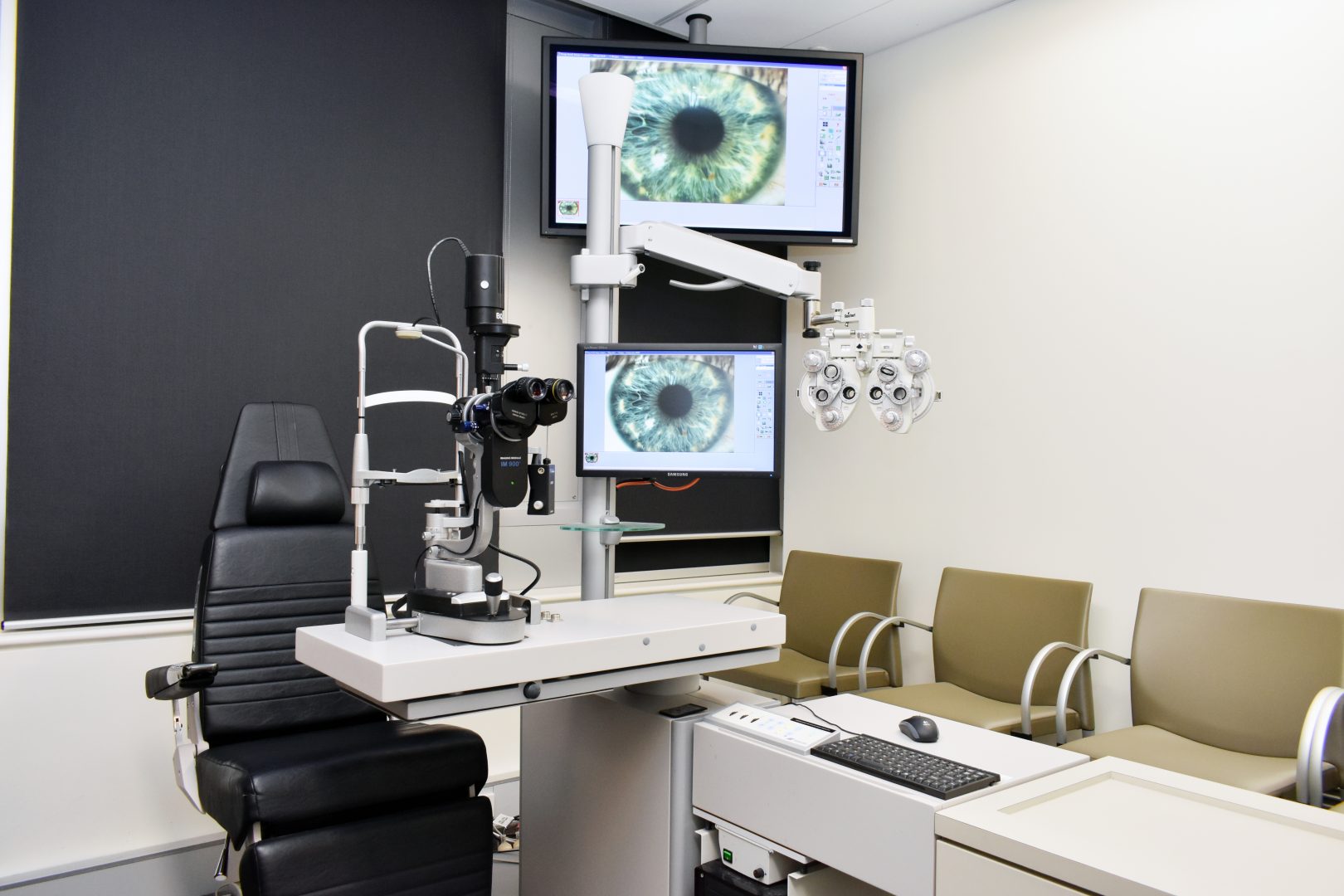

Usher syndrome is a rare genetic disease that affects both hearing and vision. It can lead to hearing loss or deafness, and an eye disease called retinitis pigmentosa.
-
What is It?
Usher syndrome is usually inherited in a ‘recessive’ way, meaning a person needs to inherit two altered copies of a specific gene - one from each parent to have the condition. The altered genes disrupt the function of cells in the inner ear (causing hearing loss) and the retina in the eye (causing vision loss). Balance issues may also occur because the inner ear isn’t functioning properly. If someone has just one altered gene, they are a ‘carrier’ and don’t have symptoms but can pass the gene to their children.
If both parents are carriers, each child has:
- A 25% chance of inheriting two altered copies and having Usher syndrome
- A 50% chance of being a carrier (no symptoms)
- A 25% chance of inheriting no altered genes and being unaffected
Usher syndrome occurs when someone inherits two altered copies of certain genes, but genetic testing can help confirm a diagnosis and identify carriers.
-
Types
There are three main types of Usher syndrome ranging from mild to severe - based on how it affects hearing, vision, and sometimes balance. The different types are linked to different genes, leading to variations in symptoms and age of onset. Some people with Usher syndrome experience challenges with balance because it can affect the middle ear.
Type 1. Early onset – People are usually born with profound hearing loss and may also have balance issues, which can delay sitting or standing up. Vision loss most commonly begins in childhood, starting with difficulty seeing in low light. Early support with hearing aids, cochlear implants and therapy can be very beneficial.
Type 2. Moderate onset – People may be born with moderate to severe hearing loss (usually manageable with hearing aids), and balance is generally normal. Gradual vision changes - like difficulty seeing in dim light often start in adolescence or adulthood.
Type 3. Later onset This is the rarest type. Hearing, vision and balance are all normal at birth, but hearing and vision may decline over time, usually starting in adolescence or adulthood. The progression varies, so early monitoring is helpful.
-
Diagnosis
If you suspect Usher syndrome or notice combined hearing and vision issues, early evaluation is important to access interventions and resources as soon as possible.
Usher syndrome is diagnosed using a combination of clinical assessments and genetic testing. A team of audiologists, ophthalmologists, and genetic counselors ensures a thorough evaluation and tailored support plan.
Hearing tests measure the type and severity of hearing loss, while vision tests and visual fields exams detect retinitis pigmentosa and peripheral vision loss. Balance tests evaluate balance function, particularly in Type 1 cases where balance is typically affected.
A detailed family history is also taken to check for patterns of hearing or vision loss. Questions about developmental milestones, hearing ability, and night vision issues help identify symptoms.
Genetic counselling can help individuals and families understand the inheritance pattern of Usher syndrome and the possibility of passing it to future generations. A genetic counsellor can explain how Usher syndrome occurs, review family medical histories, and discuss genetic testing options to identify carriers or confirm a diagnosis.
For families affected by Usher Syndrome, counselling can offer emotional support, resources, and guidance on managing the condition.
-
Management
Managing Usher syndrome involves a combination of therapies, technologies and lifestyle strategies designed to support hearing, vision and overall well-being. Along with emotional and community support, people with Usher syndrome can live complete and fulfilling lives.
-
Living with Usher Syndrome
While Usher syndrome may be challenging, there is hope and support available. Advances in technology, like cochlear implants, hearing aids, and low-vision aids can greatly improve quality of life.
Hearing aids Amplify sound to help individuals with partial hearing loss communicate more easily.
Cochlear implants For more severe hearing loss these devices bypass damaged parts of the ear to directly stimulate the hearing nerve, allowing people to perceive sound.
Speech therapy Helps individuals with hearing loss develop or maintain clear speech.
Low vision aids Devices like magnifiers, screen readers, and specialised apps or assistive tools on iphone and android devices can make daily tasks easier.
Emotional and Social Support Adjusting to vision and hearing loss can be emotional, so having a safe space to share experiences is vital. Organizations like the Usher Syndrome Coalition connect individuals with resources and others who understand their journey.
Usher-syndrome.orgHealthy Lifestyle Regular exercise, a balanced diet, and avoiding smoking can support overall eye and ear health.
Assistive Technology Apps for navigation, communication, and task management can simplify daily living.
Orientation and mobility training Teaches people how to safely navigate their surroundings, including using tools like a white cane or guide dog.
Occupational Therapy Focuses on adapting routines and environments for better independence.
-
Making the most of the vision you have
Vision and hearing may change over time, so early preparation, like learning new skills or using adaptive tools can help to reduce stress later on. By embracing available resources and focusing on abilities rather than limitations, individuals with Usher syndrome can lead empowered and fulfilling lives. Staying connected to medical professionals and support networks is important when navigating this condition.
You're not alone
Being diagnosed with Usher syndrome can feel overwhelming, but its important to remember that you are not alone. A quick search on social media will show you thousands of success stories from people living full and independent lives with this condition. There are resources, assistive technologies, and supportive communities available to help you flourish. By working with specialists and staying informed, you can adapt and thrive. This diagnosis is just one part of your journey – your resilience and determination define the rest.
If you are a parent of child diagnosed with Ushers you may find the resources at Next Sense useful. If you are an adult and have been diagnosed with Ushers you may find the resources at Retina Australia useful.



